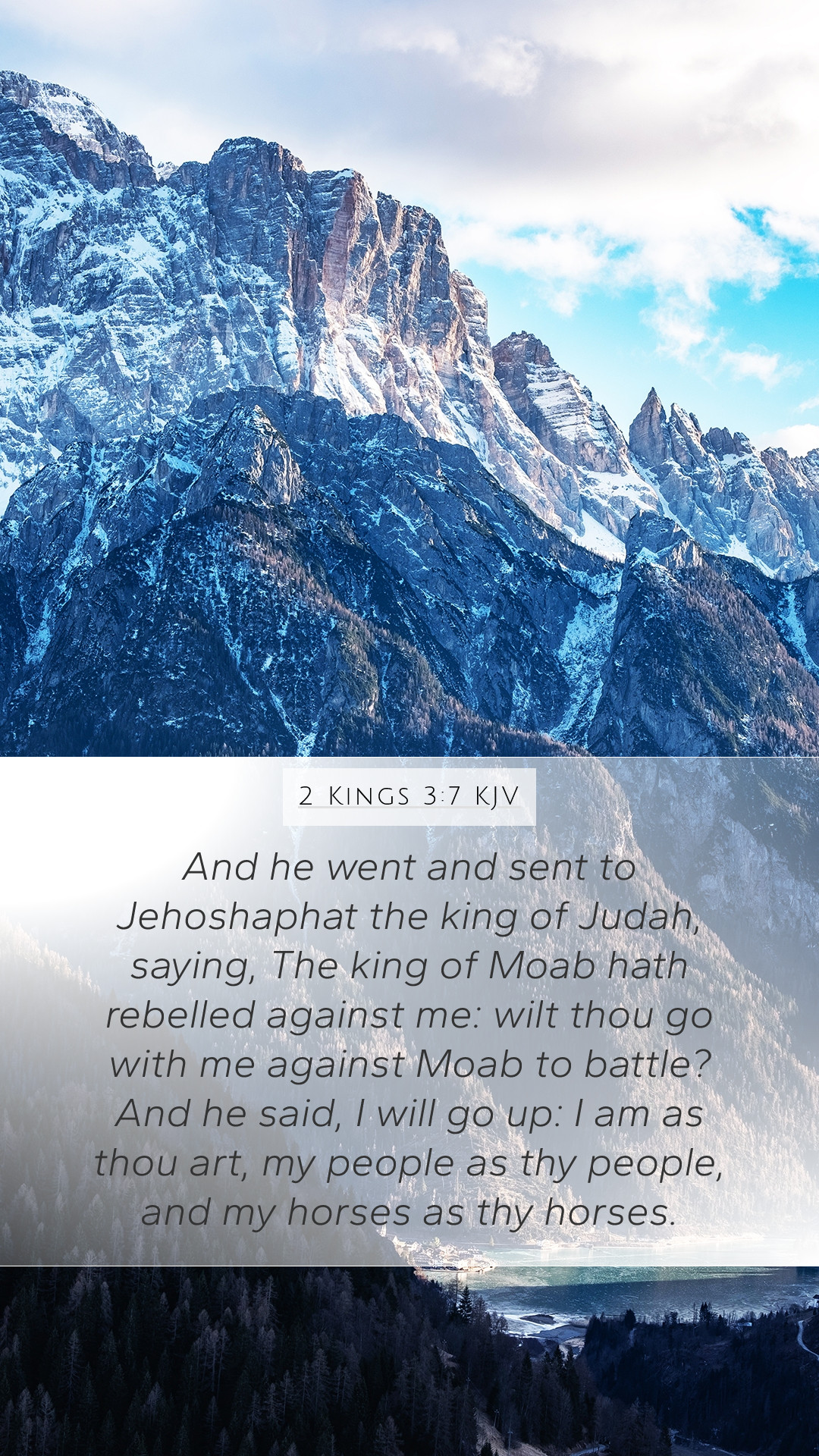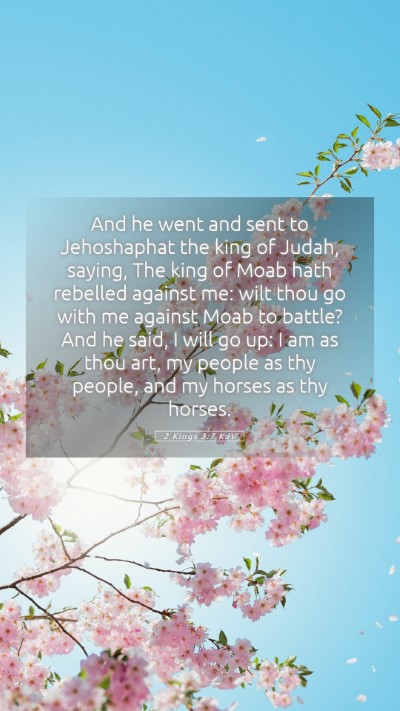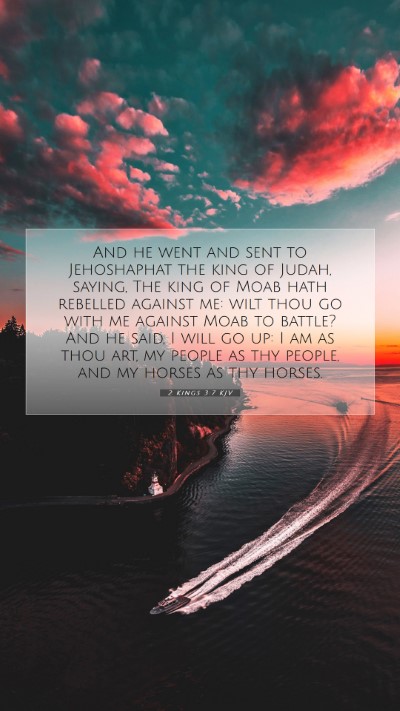Bible Verse Meaning: 2 Kings 3:7
In 2 Kings 3:7, we find an important moment in the history of Israel, where King Jehoram of Israel seeks the counsel of God through the prophet Elisha concerning a military campaign against Moab. This verse signifies a crucial step in understanding the dynamics of leadership, divine guidance, and the role of prophecy in the biblical narrative.
Contextual Background
This verse occurs during a time of conflict between Israel and Moab. After the death of King Ahab, his son Jehoram reigns over Israel. Moab, having previously been a vassal to Israel, rebels against the northern kingdom. In his quest to retain power and authority, Jehoram seeks help from the prophet Elisha, a key figure who represents God's voice during tumultuous times.
Verse Analysis
Let's break down the verse and analyze its components for a deeper understanding:
- Seeking God’s Counsel: Jehoram’s act of consulting Elisha indicates a recognition of the need for divine intervention. This highlights the absolute necessity of God's presence in matters of national importance.
- Elisha’s Role as Prophet: As the mouthpiece of God, Elisha holds the key to wisdom and guidance in Israel. His presence emphasizes that true leadership must be aligned with God's will.
- Historical Context: Understanding the geopolitical environment of the time enriches our grasp of the verse. Jehoram was dealing with serious threats, and turning to Elisha marked a significant moment of faith amid political strife.
Insights from Public Domain Commentaries
Matthew Henry's Commentary
According to Matthew Henry, Jehoram's request to consult Elisha illustrates a moment of humility amidst prideful leadership. The commentary emphasizes that even kings must seek the Lord when faced with overwhelming challenges. Henry notes that reliance on God is paramount, especially when earthly resources fall short.
Albert Barnes' Notes
Albert Barnes remarks on the significance of Jehoram's decision to engage with the prophet. He draws attention to the historical backstory of the Moabite revolt and suggests that Jehoram's mistreatment of the prophet indicates a misunderstanding of the nature of true leadership and guidance. Barnes stresses that the king's actions stemmed from a place of desperation and illustrates the need for divine wisdom in critical times.
Adam Clarke's Commentary
Adam Clarke provides cultural insights, referring to the importance of divine consultation in the ancient Near Eastern context. He argues that Jehoram’s decision to consult Elisha was not mere formality but a recognition of the prophet's significant role as a mediator of divine will. Clarke emphasizes that this encounter set the stage for God’s miraculous deliverance, furthering the narrative of God’s sovereignty over nations.
Application for Today
The lesson from 2 Kings 3:7 extends beyond ancient history. Here are some applications for believers today:
- Consult God in Decision-Making: Just as Jehoram sought guidance from the prophet, we too should seek God’s counsel through prayer and scripture before making significant decisions.
- Recognize the Role of Prophets: Understanding that God communicates through His chosen messengers emphasizes the importance of being receptive to biblical teachings and guidance from church leaders.
- Humble Leadership: Leaders should embody a spirit of humility and be open to divine instruction in their leadership roles, acknowledging that they do not possess all the answers.
Biblical Cross References
- 1 Kings 22:5: King Ahab consulted prophets before his battle, further illustrating the tradition of seeking divine counsel.
- 2 Kings 2:9-10: The importance of Elisha as a successor to Elijah, establishing the prophetic authority in Israel.
- 2 Chronicles 20:3-4: King Jehoshaphat seeks God's instruction in a time of crisis, paralleling Jehoram's actions.
Conclusion
In summary, 2 Kings 3:7 encapsulates a pivotal moment in Israel's history that echoes the timeless need for divine guidance. The prophetic involvement in the affairs of kings illustrates a profound truth: the significance of seeking God's will through prayer and counsel remains relevant today. For those involved in Bible study groups or individuals engaging in online Bible study, this verse provides rich material for discussion and reflection.
As we study scripture, it is essential to approach verses like this with a desire for understanding and interpretation, remembering the historical context and the divine messages woven throughout the biblical narrative.


